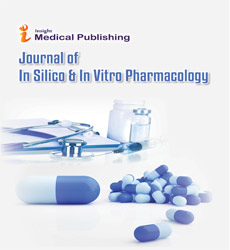Abstract
Anti-angiogenesis therapy and Immune crosstalk: Clinical conundrums and optimisms
Angiogenesis, the formation of new capillaries, is an essential process in many physiological and pathological events. In cancers, new vasculature promotes tumor growth and metastasis. Vascular permeability factor/vascular endothelial growth factor (VPF/VEGF) has been implicated in the new vessel development found in most tumors including GI related tumors, renal cell carcinoma, brain cancer and also hematological malignancies. Several groups including ours have been investigating decades regarding the regulatory role of VPF/VEGF to elucidate the mechanisms by which this important pro angiogenesis cytokine functions in a variety of tumor models. Based on those studies there are several anti-angiogenesis drugs are now in clinics to treat cancer patients and other vascular diseases. However, our recent experiences in clinics and also results from different laboratories suggest that therapy with anti-angiogenesis drugs frequently does not extend survival of cancer patients for more than months, because tumors elicit elusive resistance. In addition, some reports propose that VEGF inhibitors reduce primary tumor growth but promote tumor invasiveness and metastasis. On the other hand, like angiogenesis, escaping immune destruction is also an important hallmark for cancer progression and metastasis. Currently several immune checkpoint inhibitors have been approved by FDA to treat different type of cancer patients however there are several gaps need to fill in related to the basic understanding of those inhibitors’ function that might improve the overall clinical outcome. Recent works suggest that VEGF is one of the factors playing a key role of the success of the immune therapy. In this regard, the current lecture will focus how immune therapy can cross talk with VEGF pathways and some thoughts regarding new direction of anti-angiogenesis therapy and anti-tumor immune escape and selective targeting to best treat cancer patients in the near future.
Author(s): Debabrata (Dev) Mukhopadhyay
Abstract | Full-Text | PDF
Share this

Google scholar citation report
Citations : 203
Journal of In Silico & In Vitro Pharmacology received 203 citations as per google scholar report
Journal of In Silico & In Vitro Pharmacology peer review process verified at publons
Abstracted/Indexed in
- Google Scholar
- China National Knowledge Infrastructure (CNKI)
- WorldCat
- Publons
- International Committee of Medical Journal Editors (ICMJE)
- Secret Search Engine Labs
Open Access Journals
- Aquaculture & Veterinary Science
- Chemistry & Chemical Sciences
- Clinical Sciences
- Engineering
- General Science
- Genetics & Molecular Biology
- Health Care & Nursing
- Immunology & Microbiology
- Materials Science
- Mathematics & Physics
- Medical Sciences
- Neurology & Psychiatry
- Oncology & Cancer Science
- Pharmaceutical Sciences

